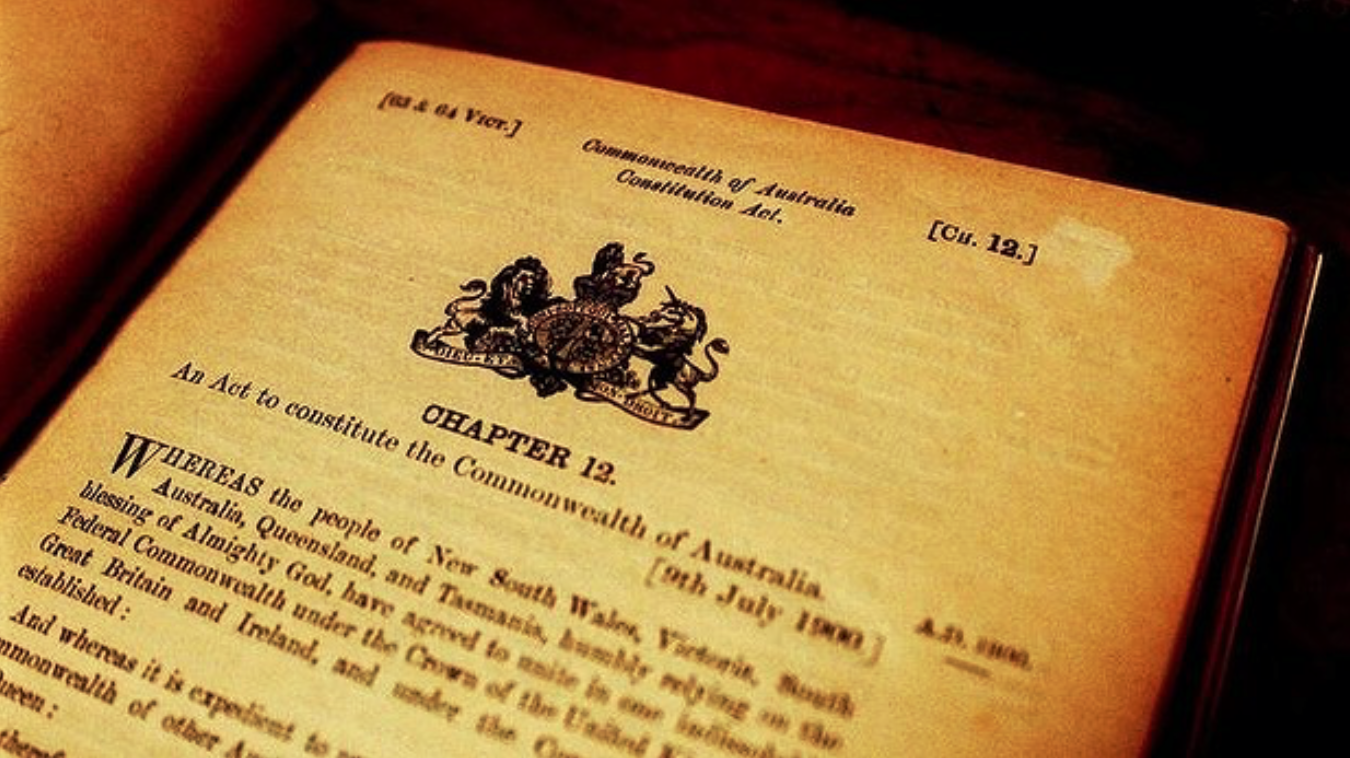Important Extracts from REPORT OF THE ROYAL COMMISSION ON THE CONSTITUTION
Alteration of the Constitution. '
A distinction is to be drawn for some purposes, including that of alteration, between covering clauses 1-8, under which the Commonwealth was established and effect given, to the Constitution, and covering clause 9, which embodies in the Act the provisions of the Constitution. The powers of alteration contained in the Constitution do not extend to covering clauses 1-8, and their provisions, so far as they remain in force, can only he altered by the British Parliament (Colonial Laws Validity Act, 1865, s. 2). The Constitution expressly left a number of matters to the decision of the Federal Parliament (ss. 7, 8, 9, 14, 16, 49, 50, 71, 73, 74, 76, 77, 78, 79, 94, 96, 101, 102, 112), and many provisions of the Constitution only remain in force “ until the Parliament other wise provides” (ss. 3, 7, 10, 22, 24, 27, 29, 30, 31, 34, 38, 46, 47, 48, 65, 66, 67, 87, 93, 97, 108). All these provisions, though some in part only, may be changed by the Commonwealth Parliament without formally altering the Constitution. "Wliere a provision of the Con stitution cannot be changed in this way, it may be altered by the method prescribed in section 128.
Powers in sections 51 and 52 subject to the Constitution.
The powers enumerated in sections 51 and 52 are expressly made subject to the Constitution. The Commonwealth Parliament cannot, under these powers, pass legislation which goes beyOnd the limits which are involved in the enumeration, or beyond those which are to be found, in the case of particular powers, in the Special provisions applicable to them. The distribution of powers has been put into the Constitution by the people of Australia, and the Commonwealth Parliament cannot merely of its own motion legislate so as to alter thrat distribution (Attorney-General for the Commonwealth v. Colonial Sugar Refining Co. Ltd., 17 C,L.R. at p. 655). If its legislation exceeds the prescribed limits, it will, at least to the extent of the excess, be invalid. When a question arises whether the limits have been exceeded, it wall be the duty of the appropriate Courts to determine the question (the Engineers' case, 28 C.L.R. at p. 149).
Incidental powers.
Each of the enumerated powers is to be read with the provisions as to “ incidental powers Under paragraph (xxxix) of section 51 the Commonwealth Parliament may make laws with respect to matters inci dental to the execution of any power vested by the Constitution (a) in theParliament} (b) in either House; (c) in the'Government of the Com monwealth; (d) in the Federal Judicature; or (e) in any department or officer of the Commonwealth. As regards any power of legislation, the Parliament would apparently have been able to make laws with respect to matters incidental to its exercise, even if paragraph (xxxix) were not in the Constitution, as the grant of a power implies that it may be exercised completely and effectually, and, therefore* that anything
may be done which is necessary for that purpose. But the express grant of incidental powers, which is similar to that in the American Consti tution, makes assurance doubly sure (G. C. Crespin & Son v. Colac Go-operative Farmers? Ltd., 21 CX.B. at 214). Paragraph (xxxix) also makes it clear that the incidental powers are to extend to administrative and judicial powers as well as to legislative powers (R. v. Kidman, 20 C.L.B. at p. 443). It covers a great variety of legislation—for example, criminal legislation in regard to federal matters, legislation creating an offence under one of the enumerated powers and directing that a person who is accused of the offence and is within the power must prove his innocence, and legislation under which a regulation may be made fixing the price of bread in war time in particular localities (cf. Williamson v. Ah On, 39 C.L.B. 95; Farey v. Burvett, 21 C.L.B. 433). But paragraph (xxxix) has its limits. It does not confer an additional power. It does not do more than cover matters which are incidents in the exercise of some actually existing power; it applies only in relation to powers which are vested in the Parliament or other Federal authority, and not to powers vhich are merely capable of being acquired by an alteration of the Constitution, and it applies only in relation to a power which has been actually exercised (Colonial Sugar Refining Go., Ltd. v. Attorney-General for the Commonwealth, 17 C.L.B. at 655; ex parte Walsh and Johnson, in re Yates, 37 C.L.B. 36).
400 pages.
